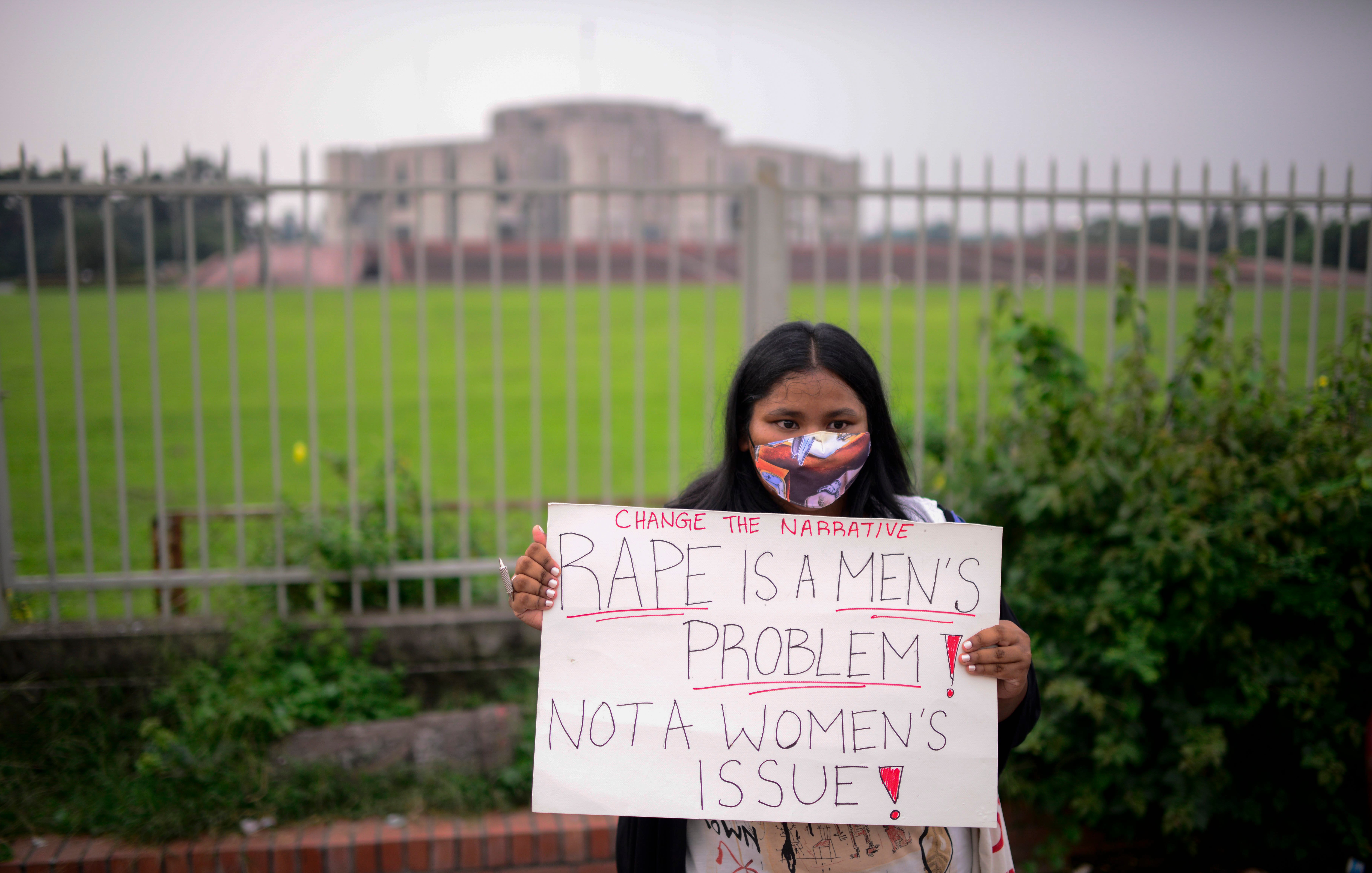Bangladesh to bar colonial-era ‘immoral character’ test in rape cases
‘Laws that allow the introduction of a victim’s sexual history are based on patriarchal assumptions that only ‘chaste’ and ‘moral’ women can be raped,’ says campaigner

Bangladesh is set to end accusations of “immoral character” against rape victims who come forward to report sexual violence to police.
Campaigners say legislation implemented in 1872 during British rule is frequently used to throw into doubt the evidence provided by rape victims.
Section 155 (4) of the legislation states if a man is prosecuted for rape, police and lawyers are allowed to demonstrate the complainant had a so-called “immoral character.”
Anisul Huq, Bangladesh’s Justice minister, said the cabinet of Prime Minister Sheikh Hasina had decided to eradicate the character evidence element of the law which is used when police are carrying out investigations and victims are cross-examined in court proceedings.
While Nina Goswami, a leading Bangladeshi activist who belongs to the local Ain o Salish Kendra rights group, told Al Jazeera the change in law is a “remarkable achievement”.
The campaigner warned character evidence had resulted in many victims of sexual violence not pursuing legal action against their perpetrators due to being scared of being publicly shamed.
It comes after women’s rights campaigners have been calling for rape victims to stop having their character or so-called morality interrogated in court for years.
Jacqui Hunt, of Equality Now, a global NGO, told The Independent: “It is very welcome news that Bangladesh is making an important step in closing a serious gap in its law.
“UN guidelines say that states should prohibit the introduction of a survivor’s sexual history as evidence in sexual violence cases. Laws that allow the introduction of a victim’s sexual history are based on patriarchal assumptions that only ‘chaste’ and ‘moral’ women can be raped.
“They contribute to the impunity of perpetrators and lead to re-victimisation of survivors who are subjected to traumatic and degrading cross-examinations in court about their past sexual relationships. They are effectively told that if they are already ‘habituated’ to sex, then they cannot have been harmed by rape or penetration.”
Ms Hunt noted the law in Bangladesh expressly permits evidence in rape cases that demonstrates the victim “was of generally immoral character”.
“From Equality Now's research into laws in different countries, even if sexual history is not explicitly permitted or only allowed in limited circumstances in the law, in reality, victims and survivors of rape are judged in courts as worthy or otherwise of justice,” she added.
“Laws and practices should be based on whether there was mutual and genuine consent to penetration. Since consent can only be evaluated according to the circumstances at the time the alleged crime occurred, evidence of past sexual history should be irrelevant in a rape trial.”
The campaigner said her NGO was urging Bangladesh not only to eradicate the moral character element in law but also to roll out measures which address cultural issues with the criminal justice system.
“To ensure in practice that in future the law enforcement system is not allowed to pour shame on the character of the victim instead of seeking evidence about the perpetrator's behaviour,” Ms Hunt said.
“This would work to ensure both that perpetrators are apprehended and punished and that an environment is created that does away with rape myths and prejudicial stereotypes and creates a safer environment for women to be free from violence.”
The United Nations previously raised grave concerns about the rising rates of rape cases in Bangladesh in recent years – urging the nation to overhaul its criminal justice system.
Fury has raged over sexual violence towards women in recent years, with nationwide protests held and the government introducing the death penalty in rape cases in October 2020. The law previously punished convicted rapists with a maximum of life in jail.
Join our commenting forum
Join thought-provoking conversations, follow other Independent readers and see their replies
Comments

Bookmark popover
Removed from bookmarks